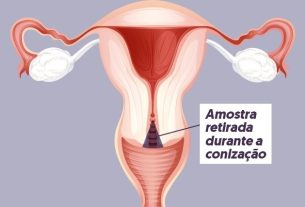Food allergies are characterized by an immune system reaction after eating a certain food. The problem can affect anyone at any age, but is more worrying in children, due to the patient’s lack of communication. To give you an idea, the Brazilian Association of Allergy and Immunology (ASBAI) estimates that 6 to 8% of children in the world suffer from some type of allergy. In Brazil, the best known are intolerance to gluten and cow’s milk protein (APLV).
Gluten intolerance
Also known as celiac disease, gluten intolerance is an immunological reaction when ingesting the protein found in wheat, barley or rye.
According to the National Health Council, it affects around 2 million children in Brazil, but, unfortunately, the number may be higher due to the lack of accurate diagnoses.
Cow’s milk protein allergy (CMPA)
This condition appears when consuming a product that contains cow’s milk protein. In babies, it may appear after eating or drinking products that contain it, causing an allergic reaction of the immune system. The European Society of Pediatric Gastroenterology, Hepatology and Nutrition reveals that 1 to 17% of children under 3 years of age have symptoms suggestive of CMPA. What’s more: 2 to 3% of children under 3 years old are already diagnosed with this allergy.
The big difference between celiac disease and CMPA is that, over time and with correct nutrition, a child with CMPA can return to consuming milk protein. As for celiac disease, there is no regression.
Allergy that affected three lives
When a child is affected by one of these conditions, the mother ends up going out of her way to ensure that quality products arrive for her children’s safe consumption.
Talita Knupp Souza knows this well. She is married to Saul Pereira. The teacher and the truck driver are the parents of Tainá Souza, a girl who came into the world ready to fight.
The little girl in her first 9 days of life cried desperately. She slept just over 1 hour and couldn’t eat very well. With every kilo the girl lost, her mother grew tons of despair.
Some doctors said it was just the natural cramping of the first few months of life. Others insinuated that the first-time mother was not ready to perform her maternal role masterfully. “I got tired of arriving at the emergency room and waiting for 4 hours to be told that my daughter was too dressed up, that I was letting her go hungry or even that my milk was no good”, explains Talita.
With the little girl’s situation getting worse and Talita looking for a solution, her support network was extremely important towards a definitive diagnosis. However, what is safer than a mother’s lap?
Between going and going to hospitals, she met Dr. Marilza Cubas Ribas. The pediatrician lovingly took care of both the daughter’s symptoms and the mother’s tiredness, who at that point could no longer breastfeed due to the little milk she was producing. The doctor asked the girl to go to a gastropediatrician, where, finally, they brought a definitive diagnosis after 2 months of anguish: Tainá was allergic to cow’s milk protein.
The results of the exam brought relief to Talita, who didn’t know why her daughter had been crying so much since the ninth day of birth. But, at the same time, she understood that it would be a long journey that both mother and daughter would need to go through together.
Due to the daughter’s advanced condition, it was recommended that she eat only an amino acid formula. The mother also had to eliminate from her diet any product that contained cow’s milk protein, in order to feed the little one again.
“After 15 days, Tainá was already gaining weight, sleeping better… She was another child. I was even able to breastfeed her again”, recalls Talita.
The drama of food introduction
Everything seemed to be going well until the food introduction phase arrived. Another drama faced by the duo.
When choosing products on the market to make softer foods for the girl, Talita always chose products that said they did not contain milk as described on the labels. However, a small portion was enough for Tainá to suffer from the pain again.
What would be the reason if the label itself said that it did not contain milk? It was here that she and Saul discovered the biggest villain of foods for people with allergies.
“We started to realize that what was on the label was not always valid. And there we learned what cross-contamination was”, recalls Talita.
But after all, what is ”Cross Contamination”?
Cross-contamination is the transfer of disease-causing organisms from contaminated food to uncontaminated food. In other words, even if a food was produced without milk, it could have been manufactured with other foods that contained the protein. Soon, he ended up purchasing it too, even though it wasn’t the manufacturer’s intention. A serious oversight like this can generate a strong allergic reaction in the individual, just as happened with Talita’s daughter.
As the years passed and the complete restriction of milk in childhood, Tainá began to come into contact with products that contained the much feared cow’s milk protein and, thanks to medical support and the persistence and care of her mother, her body was now able to process the protein. In other words, after a while, the girl became a fan of yogurts and cheeses.
A new chapter, but with experience
Some time later, Talita and Saul had their second son, Saul Junior. The boy presented the same symptoms as his sister in the first months of his life. The diagnosis was already expected: he also had CMPA.
More experienced and with the certainty of her improvement, Talita sought out the pediatric gastrologist and quickly started treatments. All over again, for your little one’s quality of life.
Today, he can also consume products with milk without fear of being happy!
The loneliness of a mother with an allergic child
Talita’s story adds to so many other stories from mothers of allergic children. Where, in addition to the presence of allergies, another point outlines them all: the mother’s loneliness in the process of discovering a cure or improvement for her child.
Most mothers report the lack of qualified health professionals to care for an allergic child, in addition to low support from family/friends in this process. Dietary restriction also becomes a social restriction. “Sometimes, people don’t understand the whole picture that comes with an allergy,” adds Talita.
Not to mention companies that do not comply with food safety protocols and, due to a lack of knowledge or processes, send products to allergic people along with contaminated items.
“It’s not a question of luxury. The person who has an allergy has a health issue involved. I think there should be a look at this, suddenly in the fiscal and tax part, to reach it cheaper for the end consumer”, declares Talita.
From allergies a new segment
Talita and Saul were already involved in the food business. They started with Brazil nuts, a national food that had a high consumption among Brazilians. Next, they included cashew nuts for the same reasons.
In the company’s early years, Saul sold door to door, while Talita organized the tax part and other administrative duties. Both are always open to new developments on the market and aware of the quality of their product.
The company was founded in 2012. Two years later Tainá was born and with her a new meaning for the enterprise. After all, her parents had experienced firsthand the consequences of negligently manufacturing contamination-free products.
Combining this life experience with a visit from the Celiac Association, the direction of the business changed. The couple decided to produce foods without gluten and/or without cow’s milk protein. And, of course, they had to reformulate the name. Here comes Tainá Alimentos, a leading company in Curitiba in the manufacture of natural products.
They have invested in an in-house laboratory where they test all incoming products for the presence of gluten or cow’s milk protein. They installed strict protocols with employees to prevent any contamination from reaching the food: everyone changes their uniforms four times a day and cannot enter the company with food containing gluten. All this to become a safe supplier for natural product companies and, above all, to be sure that their products can be consumed without fear by people with allergies.
Ultimately, Tainá Alimentos is the industry leader in the natural products segment, thanks to its continuous testing and care for its target audience. All of this comes from a struggle faced by mother and daughter, in which they seek to guarantee other mothers and children a healthy, nutritious and safe diet. Basically, that Jewish saying was right: “God cannot be everywhere and that is why he made mothers”.

Sign up for our newsletter and stay up to date with exclusive news
that can transform your routine!
Warning: Undefined array key "title" in /home/storelat/public_html/wp-content/plugins/link-whisper-premium/templates/frontend/related-posts.php on line 12
Warning: Undefined array key "title_tag" in /home/storelat/public_html/wp-content/plugins/link-whisper-premium/templates/frontend/related-posts.php on line 13



